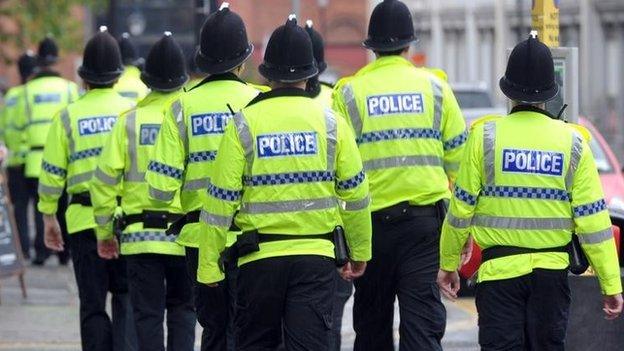First knife crime rise in four years
- Published
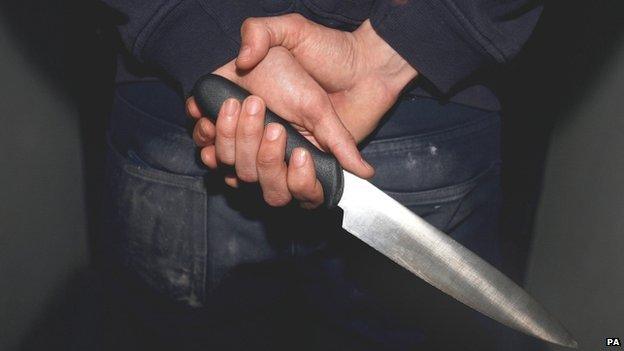
Knife crime across England and Wales has risen for the first time in four years, official figures have revealed, external.
Police recorded 26,370 offences in 2014/15, up from 25,974 the previous year - breaking a downward trend since 2010/11.
The Office for National Statistics said the increase was "real" and was unlikely to be due to changes in police recording practices.
The separate Crime Survey for England and Wales said that crime fell by 7%.
It suggested that crime had fallen to its lowest level since 1981, estimating that there were 6.8 million crimes in 2014/15.
The survey is a rolling project that interviews people about their experiences of crime, whether or not they have gone to the police.
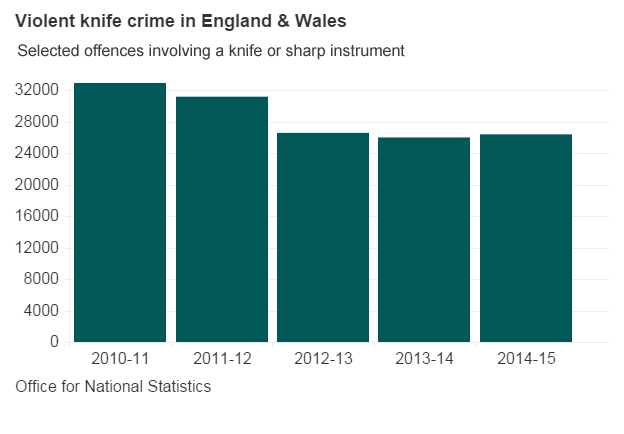
In contrast, the ONS data suggested that police recorded crime increased by 3%, with 3.8 million offences recorded in the year ending March 2015.
The ONS said this was driven by a 23% rise in violence against the person offences - but it said this increase was thought to reflect changes in recording practices.
The statistics come ahead of tougher penalties, due to come into force on Friday, that will mean adults in Englannd and Wales convicted more than once of being in possession of a blade face a minimum six month prison sentence and a maximum of four years.
Young offenders, aged 16 and 17, will face a minimum four month detention and training order.
Former knife carriers tell the Victoria Derbyshire programme why they did it
The ONS data showed that possession of knife offences rose by 10%, sexual assaults with knives went up 28%, and knife assaults increased by 13% from 11,911 to 13,488 offences.
There was a decrease in robberies involving knives, down 14% from 11,927 to 10,270.
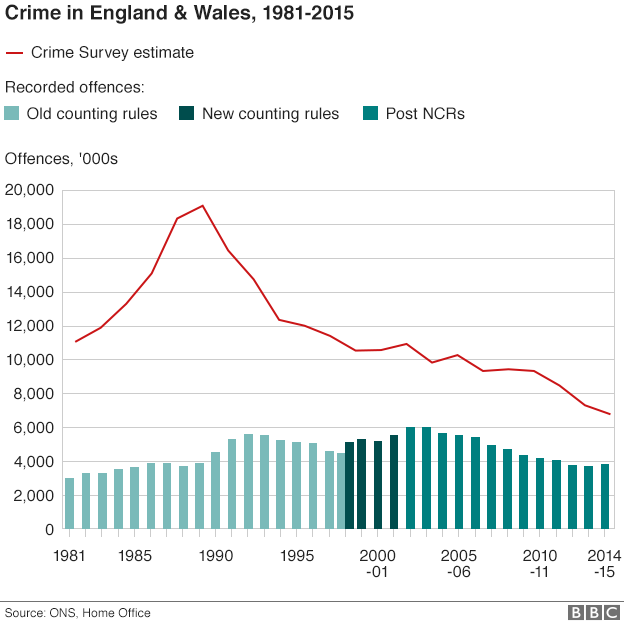
The statistics also showed:
A 37% rise in the number of sexual offences recorded by the police
The number of rapes (29,265) and other sexual offences (58,954) are at the highest level since the introduction of the National Crime Recording Standard in 2002/03.
A 9% increase in the volume of fraud offences recorded by Action Fraud
In contrast, the latest estimate from the Crime Survey for England and Wales showed no significant change in the proportion of adults aged 16-59 who reported being a victim of a sexual assault.

Analysis
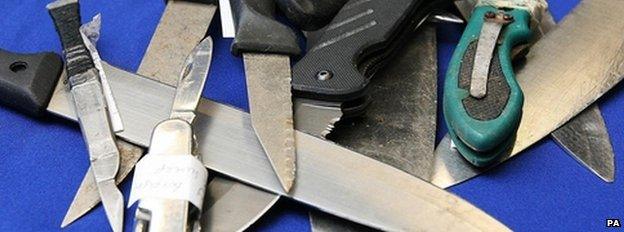
By Dominic Casciani, BBC home affairs correspondent
These figures won't be a surprise to many senior police officers. The signs of a statistical U-turn began appearing last year - and last month's figures showed a definite rise in injuries in London.
So what's going on? Knife crime has been falling in England and Wales since a huge and concerted police effort in 10 areas after record figures in 2008.
That long-term operation included a lot of intelligence-led stop and search operations with officers asking communities to identify the gangs and riskier street corners.
But stop and search has been falling after the home secretary told forces to rethink how they're using it.
She said nobody wins when it's used poorly - particularly if used unfairly against young black men.
So if the rise in knife offences is linked to that fall in using stop and search, something that officials say has never actually been proven, can the police find a way to use it intelligently to keep weapons off the streets?

National Police Chiefs' Council lead for crime recording, Chief Constable Jeff Farrar said: "We are encouraged to see crime continuing to fall, police recording of crime becoming more accurate and victims more willing to report crime to the police."
Mr Farrar said that a 30% increase in records of violence without injury and 37% rise in records of sexual offences were as a result of improved recording practices and greater victim confidence to report.
He said it did not indicate a marked rise in offending.
Mark Castle, chief executive of Victim Support said: "As a charity which has supported thousands of victims of knife crimes we know how devastating these types of offences can be, particularly for young people and their families.
"After years of success in driving knife crime down, this rise is a worrying development and efforts to educate people about the dangers of carrying knives must be stepped up."
- Published9 June 2015
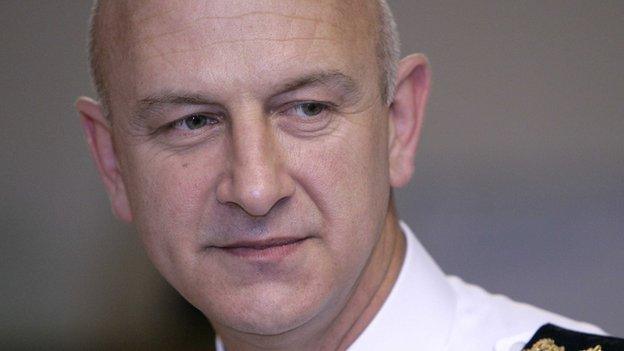
- Published22 January 2015
